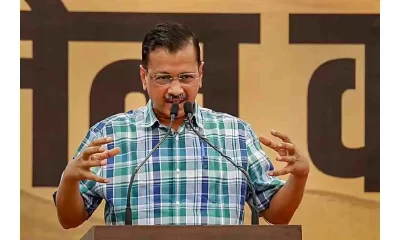The U.S. Supreme Court on Wednesday upheld a federal judge’s authority to order the Trump administration to pay $2 billion to contractors of the U.S. Agency for International Development (USAID) but stopped short of requiring immediate payment. The 5-4 decision rejected an emergency application filed by the Justice Department, which sought to block the order issued by U.S. District Judge Amir Ali.
Judge Ali had issued a series of rulings demanding the government release funds that President Donald Trump froze through an executive order targeting what he called wasteful foreign aid programs. While the Supreme Court’s decision is a temporary setback for the Trump administration, the nonprofit organizations and businesses awaiting payment remain in limbo. One organization recently laid off 110 employees due to the funding freeze, according to court documents.
Justice Samuel Alito, leading the dissenting conservative justices, criticized the ruling, calling it a reward for “an act of judicial hubris” and arguing that it imposes a $2 billion burden on American taxpayers. Alito contended that Judge Ali lacked the authority to mandate such payments.
The Supreme Court’s decision leaves in place Ali’s temporary restraining order, which had paused the spending freeze. Judge Ali is scheduled to hold a hearing on Thursday to consider a more permanent solution.
The majority opinion, supported by Chief Justice John Roberts and Justice Amy Coney Barrett alongside the court’s three liberal justices, noted that the Trump administration had not challenged Ali’s initial order but only the deadline for compliance, which has already passed. The court instructed Ali to clarify the government’s obligations under the temporary restraining order, taking into account the feasibility of compliance timelines.
Justices Clarence Thomas, Neil Gorsuch, and Brett Kavanaugh joined Alito in dissent.
The Trump administration argued that the situation had evolved since the initial freeze, as it replaced the blanket spending halt with individualized assessments. These assessments led to the cancellation of 5,800 USAID contracts and 4,100 State Department grants, totaling nearly $60 billion in aid.
The funding freeze was implemented following an executive order by President Trump, who criticized foreign aid programs as wasteful and misaligned with his foreign policy objectives. The subsequent lawsuit alleged that the freeze violated federal law and disrupted critical, life-saving programs abroad.
Judge Ali initially ordered the temporary restoration of funding on February 13. However, after nearly two weeks of non-compliance, he set a deadline for the government to release payments for work already completed. The administration appealed, calling Ali’s order “incredibly intrusive and profoundly erroneous” and objecting to the timeline for releasing the funds.
The Supreme Court’s decision underscores the ongoing tension between the judiciary and the executive branch over the administration’s foreign aid policies. While the ruling affirms the judiciary’s role in overseeing executive actions, the delay in payment leaves contractors and aid organizations grappling with financial uncertainty.
As the legal battle continues, the fate of billions of dollars in foreign aid remains unresolved, with significant implications for global humanitarian efforts and U.S. foreign policy.























